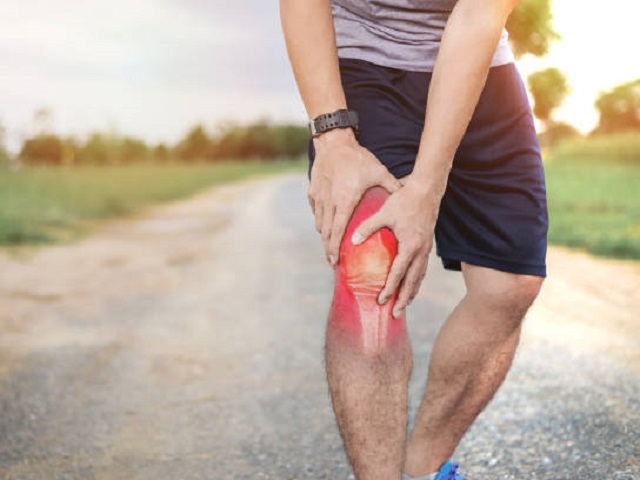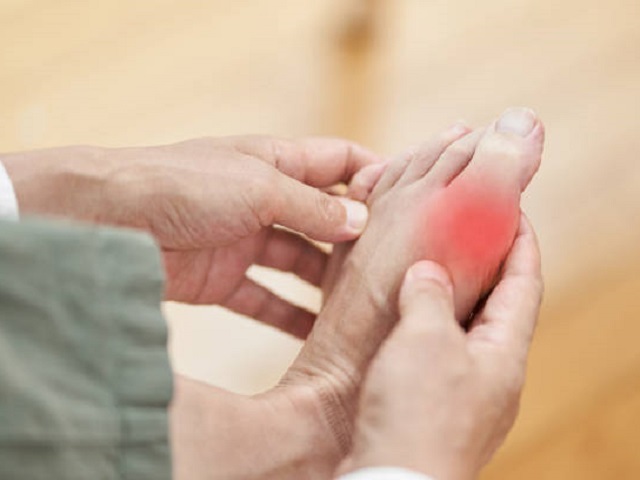6 Signs You May Have Rheumatoid Arthritis -- Symptoms, Causes, Effects, Treatment and Prevention
Rheumatoid arthritis (RA) is a chronic autoimmune disease that primarily affects the joints. It causes inflammation and damage to the lining of the joints, leading to pain, stiffness, and joint deformity. Unlike osteoarthritis, which is a degenerative joint disease, RA is characterized by an overactive immune response that mistakenly attacks healthy tissues.
Symptoms of Rheumatoid Arthritis
The symptoms of rheumatoid arthritis can vary from person to person, but common signs and symptoms include:
- Joint pain and swelling: Persistent pain, tenderness, and swelling in the joints, typically affecting the hands, wrists, and feet.
- Morning stiffness: Stiffness and difficulty moving the affected joints, particularly in the morning or after periods of inactivity.
- Fatigue: Generalized fatigue, weakness, and lack of energy.
- Joint deformity: Over time, RA can cause joint deformities and changes in joint alignment.
- Reduced range of motion: Limited mobility and decreased range of motion in the affected joints.
- Systemic symptoms: In some cases, RA can also involve systemic symptoms such as fever, weight loss, and inflammation in other organs.
Diagnosis of Rheumatoid Arthritis
The diagnosis of rheumatoid arthritis involves a combination of medical history, physical examination, laboratory tests, and imaging studies. Key diagnostic approaches include:
- Medical history and physical examination: Assessing symptoms, joint involvement, and joint deformities.
- Blood tests: Measuring certain markers, such as rheumatoid factor (RF) and anti-cyclic citrullinated peptide (anti-CCP) antibodies, which are often elevated in RA.
- Imaging tests: X-rays, ultrasound, or magnetic resonance imaging (MRI) to assess joint damage, inflammation, and joint erosions.
- Synovial fluid analysis: Removing a small sample of fluid from the affected joint to examine for signs of inflammation and immune system activity.
Causes of Rheumatoid Arthritis
The exact cause of rheumatoid arthritis is unknown, but it is believed to result from a combination of genetic and environmental factors. Potential causes and risk factors include:
- Genetic predisposition: Certain genetic variations increase the likelihood of developing RA.
- Autoimmune response: An abnormal immune response that mistakenly attacks healthy joint tissues.
- Environmental triggers: Exposure to certain environmental factors, such as infections or smoking, may contribute to the development of RA.
Effects of Rheumatoid Arthritis
Rheumatoid arthritis can have significant effects on various aspects of a person's life, including:
- Joint damage and deformity: Ongoing inflammation can lead to progressive joint damage, erosion, and deformity.
- Reduced mobility and function: Joint pain, stiffness, and swelling can limit mobility and impair physical function.
- Systemic complications: RA can affect other organs and systems in the body, leading to complications such as cardiovascular problems, lung issues, and increased risk of osteoporosis.
- Emotional and psychological impact: Living with chronic pain and physical limitations can have a psychological toll, including increased stress, anxiety, and depression.
Treatment and Prevention of Rheumatoid Arthritis
The management of rheumatoid arthritis aims to control symptoms, prevent joint damage, and improve overall quality of life. Treatment options may include:
- Medications: Nonsteroidal anti-inflammatory drugs (NSAIDs), disease-modifying antirheumatic drugs (DMARDs), and biologic agents to reduce inflammation and modify the immune response.
- Physical therapy: Exercises and therapy techniques to improve joint flexibility, strength, and function.
- Lifestyle modifications: Rest, joint protection techniques, and adaptive aids to minimize joint stress.
- Surgical intervention: In advanced cases, joint replacement surgery may be necessary to repair or replace severely damaged joints.
- Regular medical care: Regular check-ups with a rheumatologist to monitor disease progression, adjust medications, and address any complications.
Prevention strategies for rheumatoid arthritis are currently not well-established, as the exact cause of the disease is unknown. However, some general lifestyle habits that promote overall health may contribute to joint health and potentially reduce the risk of developing RA, such as maintaining a balanced diet, regular exercise, avoiding smoking, and managing stress.
References:
Mayo Clinic. (2021). Rheumatoid arthritis. Retrieved from https://www.mayoclinic.org/diseases-conditions/rheumatoid-arthritis/symptoms-causes/syc-20353648
Arthritis Foundation. (n.d.). Rheumatoid arthritis. Retrieved from https://www.arthritis.org/diseases/rheumatoid-arthritis


















